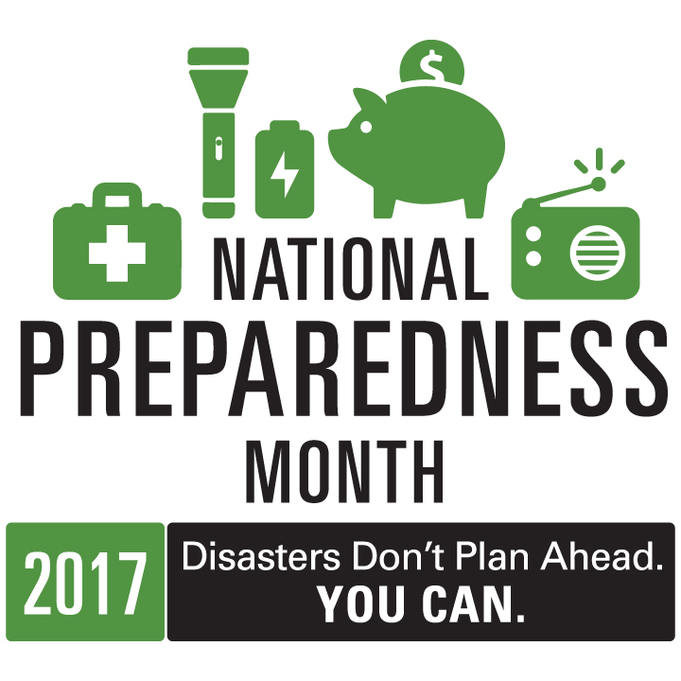 The month of September is recognized as National Emergency Preparedness Month.
The month of September is recognized as National Emergency Preparedness Month.
Sadly, during the past month, there’s been a steady stream of news coverage about hurricanes, flooding, fires, earthquakes, etc. These events reinforce the need for families to develop family disaster plans.
The best approach is to confront this somewhat overwhelming task by starting small and working up to the more difficult aspects of preparedness. Nobody wants to imagine facing disasters, but being prepared in advance is the best protection you can put in place for yourself and your family.
Work/Life Connections asks you to consider the following steps:
- Gather important papers and photos, and put them in a safe place. Make copies by scanning or taking photos on your phone to have records of these documents.
- Review your insurance plans to see what coverage you have.
- Backup your important computer files. Store them in “the cloud” or on a thumb drive that you keep elsewhere.
- Document the contents of your house. One way is to make a recording while walking through the house to record all your valuables. Store the video in a safe place.
- Create a family plan for getting out of your home and where you will meet to re-group.
- Make sure you have executed Advanced Directives.
- Make a disaster supply kit that you can “grab-and-go” containing essentials like medications and important documents.
- Consider stockpiling some bottled water, food, and other supplies you may need (e.g., diapers, formula, dog food) depending on your situation.
- Have an emergency contact sheet on your refrigerator and in your cellphone contacts, including the names of each family member, birth dates, blood types, allergies, medical issues and medications.
- Have an extra cellphone charger or battery pack, if possible.
- Start gathering disaster supplies a little at a time with each visit to the store (e.g., smoke and carbon monoxide detectors, fire extinguishers, first aid kit, flashlights, batteries, etc.)
Many online resources are available to help prepare you and your family for emergencies. Here are a few websites that offer more information about setting up a family disaster plan:
Vanderbilt University Emergency Preparedness: https://emergency.vanderbilt.edu/
Department of Homeland Security: https://www.ready.gov/
American Red Cross: http://www.redcross.org/get-help/how-to-prepare-for-emergencies
[lquote]Knowing where to access emotional support is also part of preparedness.[/lquote] For those who experience loss firsthand, their lives have been turned upside down and will not return to “normal” anytime soon. There is also a strong possibility of developing acute stress disorder or post-traumatic stress disorder.
Coping with these types of events requires incredible courage and resilience. Secondary exposure to trauma through media coverage also may produce responses similar to PTSD. This is especially true if you fear for the safety of a loved one or have experienced a similar event in your own life. If you are finding that hearing and seeing coverage of recent events triggers anxiety and challenges your usual coping abilities, call Work/Life Connections-EAP at (615) 936-1327 and make a confidential appointment to meet with one of our counselors.
More information: https://healthandwellness.vanderbilt.edu/work-life/